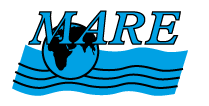Staff bios
Craig Strang
Associate Director, Lawrence Hall of Science, University of California, Berkeley 510-642-9809, contact Craig by email
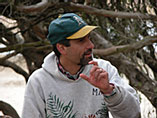
Craig served on the Advisory Committee for the National Science Foundation Geosciences Directorate, and on the National Academy of Sciences Panel Reviewing NOAA Education Programs. He is past-president of National Marine Educators Association and sat on the board of directors of NMEA from 1988-1993, and on the Board Executive Committee from 2006-2014. Craig testified in Congress on February 4, 2010 before the House Appropriations Subcommittee on Commerce, Justice and Science on the value of inquiry-based science education, and the important role that NSF, NOAA and NASA play in improving science education. Craig has conducted field research on elephant seals and humpback whales, and until 2002, led natural history eco-tours to East Africa, Baja California and Galapagos.
Catherine Halversen
 Contact Catherine by email or phone: 510-642-7653.
Contact Catherine by email or phone: 510-642-7653.
Catherine is Co-Director of MARE: Marine Activities, Resources & Education, a nationally recognized, whole-school K–8 marine sciences immersion program at the University of California, Berkeley’s Lawrence Hall of Science. She serves as Director of the Communicating Ocean Sciences Informal Education Network (COSIA Network), a national network of museums and aquariums partnered with universities to offer regional professional learning for informal educators through the Reflecting on Practice program, and to teach the Communicating Ocean Sciences college courses at their universities. She leads the efforts to disseminate these award-winning courses that help faculty and their students to become effective communicators of science, while also teaching the courses at Berkeley since 2004. These courses are offered for undergraduate and graduate students in science who also have an interest in education and introduce diverse future scientists to the importance of K–12 education, public outreach and the “broader impact” of their work. The courses were originally developed as part of COSEE California, for which she serves as Co-PI, and they are now being offered in over two-dozen institutions nationwide. Catherine also serves as PI for Promoting Climate Literacy, an NSF project to develop a new Communicating Climate Science course that helps undergraduate and graduate science students to increase the public’s climate literacy.
Catherine has experience leading face-to-face and blended professional learning opportunities for a wide range of STEM faculty and scientists to help them share their science more effectively with the public. As PI for Redefining the College Lecture, she and Lynn Tran are developing a professional learning program for STEM faculty to incorporate research about teaching and learning into their large lecture courses.
Catherine has developed and implemented several programs that promote the integration of science inquiry and literacy. She directed the NSF-funded Reducing Barriers to Academic Achievement & Marine Geosciences Careers: Developing a Model Middle School Program Integrating Marine Geosciences & Literacy, and the Mountain Region Science and Reading Academy, which integrated science and reading skills for traditionally underserved rural communities. She is the science developer for the Seeds of Science • Roots of Reading Shoreline Science and Aquatic Ecosystems units, was the lead developer of MARE’s eight volume inquiry-based marine science curricula, co-wrote three marine science teacher’s guides (On Sandy Shores, Only One Ocean, and Ocean Currents) for Great Explorations in Math and Science (GEMS), and most recently served as Co-PI and led the development team that wrote the NOAA-funded Ocean Sciences Curriculum Sequences (OSS) for Grades 3-5 and OSS for Grades 6-8: The Ocean-Atmosphere Connection and Climate Change.
Emily Weiss
Marine Science and Literacy Education Specialist 510-643-6350, contact Emily by email
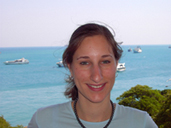 Emily Weiss got her first taste of experiential science education as a teenage volunteer on an EarthWatch expedition, studying dolphin feeding behavior, where she cultivated a love of science and the ocean. Before coming to MARE, Emily earned a B.A. in public policy with a focus on education reform from Brown University and a Master’s degree in language and literacy from the Harvard Graduate School of Education. While working as a certified reading specialist in the Massachusetts public schools, Emily partnered with classroom teachers to build literacy activities into their content area curricula and frequently led teacher workshops. She also served as a literacy consultant for the Massachusetts Department of Education and the MGH Institute of Health Professions Hanson Initiative for Language & Literacy, training hundreds of teachers and administrators in best practices in literacy instruction. Emily then went on to earn a Master’s degree from the Boston University Marine Program in Woods Hole, Massachusetts, where she studied the population structure of Atlantic cod on Georges Bank using molecular genetics techniques. Her work has been used to inform fisheries management decisions in New England. Emily has run a middle school science club and designed curriculum for and taught at the New England Aquarium’s Harbor Discoveries program and the Woods Hole Children’s School of Science on topics ranging from ecology to embryology to marine electronics and engineering.
Emily Weiss got her first taste of experiential science education as a teenage volunteer on an EarthWatch expedition, studying dolphin feeding behavior, where she cultivated a love of science and the ocean. Before coming to MARE, Emily earned a B.A. in public policy with a focus on education reform from Brown University and a Master’s degree in language and literacy from the Harvard Graduate School of Education. While working as a certified reading specialist in the Massachusetts public schools, Emily partnered with classroom teachers to build literacy activities into their content area curricula and frequently led teacher workshops. She also served as a literacy consultant for the Massachusetts Department of Education and the MGH Institute of Health Professions Hanson Initiative for Language & Literacy, training hundreds of teachers and administrators in best practices in literacy instruction. Emily then went on to earn a Master’s degree from the Boston University Marine Program in Woods Hole, Massachusetts, where she studied the population structure of Atlantic cod on Georges Bank using molecular genetics techniques. Her work has been used to inform fisheries management decisions in New England. Emily has run a middle school science club and designed curriculum for and taught at the New England Aquarium’s Harbor Discoveries program and the Woods Hole Children’s School of Science on topics ranging from ecology to embryology to marine electronics and engineering.
While working for MARE, Emily has combined her background in education policy, literacy education, and marine science. She is particularly interested in the integration of science and literacy and increasing diversity in STEM fields. She has co-developed, taught and directed several Summer Science & Literacy Academies. She is currently the Co-Director of the NSF DRK-12 funded PRACTISE project, a collaborative research project with the Stanford Graduate School of Education, which utilizes the Summer Academy model to support teachers' use of argumentation in science as called for in the Next Generation Science Standards and the Common Core State Standards for English Language Arts. Emily has also co-taught the Communicating Ocean Sciences courses for UC Berkeley science students, coordinated the MARE Ocean Immersion program for schools, developed and led customized professional development experiences, provided ongoing technical assistance to multiple school districts around district-wide science education plans through the BaySci project, and authored curriculum. Emily managed the ¡Youth & the Ocean! (¡YO!) project for middle school and was the Co-Director of the ¡YO! high school project, both of which engaged underrepresented minority students in authentic research experiences. She is also the lead author of Beach Science from the GEMS AfterSchool KidzScience collection and the Ocean Sciences Curriculum Sequences for Grades 3-5 and 6-8.
Lynn Tran
Marine Science Education and Research Specialist 510-642-6504, contact Lynn by email
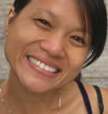 Lynn Tran is an educational researcher committed to helping educators and scientists become better science communicators. She has extensive experience working with educators in science museums with expertise in their professional knowledge, work, and identity. Her work has been presented at professional conferences such as ASTC, ECSITE, NARST, and AERA, and published in peer reviewed journals. She has a B.S. in biology with a concentration in marine biology from UCLA and a Ph.D. in science education from North Carolina State University. She did her postdoctoral work with the Center for Informal Learning and Schools at King’s College London in the UK. Lynn is Center Manager for COSEE California and contributes to the Center’s efforts on the Ocean Literacy Campaign, including having coordinated the development of the Ocean Literacy Scope and Sequence for Grades K-12 and co-edited the NMEA Special Report on the Ocean Literacy Campaign. She teaches, conducts research on learning and teaching, develops teaching materials, and provides professional development through various grant-funded projects. She leads development and national implementation of the Reflecting on Practice program, and co-teaches the Communicating Ocean Sciences to Informal Audiences course. Lyn is Co-PD of the IMLS 21MP-funded Museum Educators Reflecting on Practice and NSF-funded COSIA Network.
Lynn Tran is an educational researcher committed to helping educators and scientists become better science communicators. She has extensive experience working with educators in science museums with expertise in their professional knowledge, work, and identity. Her work has been presented at professional conferences such as ASTC, ECSITE, NARST, and AERA, and published in peer reviewed journals. She has a B.S. in biology with a concentration in marine biology from UCLA and a Ph.D. in science education from North Carolina State University. She did her postdoctoral work with the Center for Informal Learning and Schools at King’s College London in the UK. Lynn is Center Manager for COSEE California and contributes to the Center’s efforts on the Ocean Literacy Campaign, including having coordinated the development of the Ocean Literacy Scope and Sequence for Grades K-12 and co-edited the NMEA Special Report on the Ocean Literacy Campaign. She teaches, conducts research on learning and teaching, develops teaching materials, and provides professional development through various grant-funded projects. She leads development and national implementation of the Reflecting on Practice program, and co-teaches the Communicating Ocean Sciences to Informal Audiences course. Lyn is Co-PD of the IMLS 21MP-funded Museum Educators Reflecting on Practice and NSF-funded COSIA Network.
Sarah Pedemonte
Marine Sciences Education and Curriculum Specialist 510-642-5008, contact Sarah by email
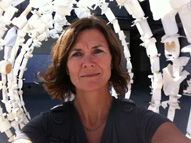
From an early age, Sarah Pedemonte knew she wanted to be connected to the ocean. She studied Marine Biology at University College of North Wales and received her Masters from the University of Stirling, Scotland in Aquaculture and Fisheries Management. She then pursued a career in fish farming that emphasized sustainability. She worked in Ireland, Israel, Bangladesh, Australia, the Bahamas and Thailand, for government groups and in private industry, transferring research-based understandings to grass-roots oyster, shrimp and fish farmers. Sarah began to promote the importance of preserving the ocean and its resources through informal education while living in Belize. She began working with the non-government organizations Oceanic Society and the Planetary Coral Reef Foundation who were working with Belizean fisheries officers on creating Marine Protected Areas. Sarah became a certified SCUBA Instructor and taught coral reef ecology and conservation.
Roberta Dean
MARE emeritus staff, Birch Aquarium at Scripps Institution of Oceanography, UC San Diego
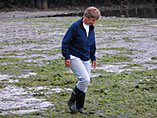
As a former developer and director of Project Ocean and Executive Director of the Sonoma Sea School, Roberta has been providing professional development and leadership for teachers in the field of marine science education for 30 years. Roberta has offered family programs and field courses for teachers in Belize, Central America, and served as an interpretive naturalist in the Bahamas and Mexico. Formerly a classroom teacher, Roberta holds a B.A. in Liberal Arts with a minor in Biology, as well as life credentials in Early Childhood Education, K-12 Education, as a resource specialist, and in both learning and severely handicapped.
